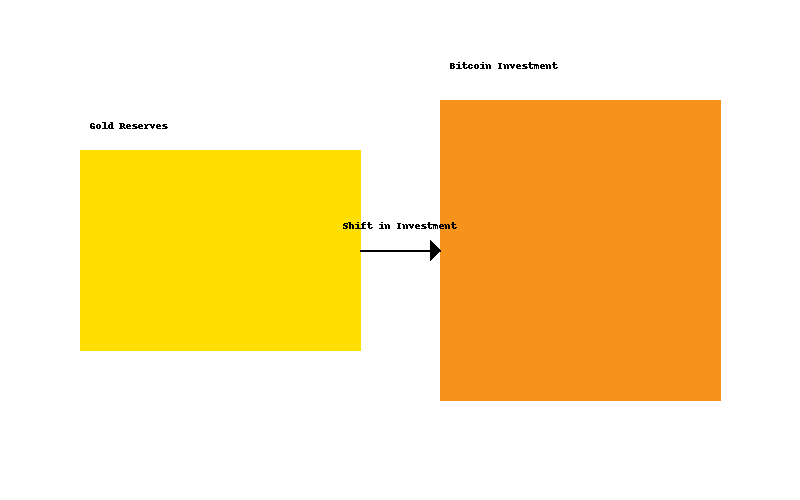Bitcoin ETFs: Catalyzing a Paradigm Shift from Gold to Bitcoin?

In an unprecedented financial shift, Bitcoin ETFs (Exchange Traded Funds) are experiencing record inflows, signaling a remarkable transition in investor sentiment and strategy. This surge comes at a time when traditional assets, particularly gold, have long dominated portfolios as the quintessential safe-haven assets. However, the tide appears to be turning, with Bitcoin, often heralded as 'digital gold,' beginning to challenge the physical metal's centuries-old status.
The Inflow Phenomenon
The approval of Bitcoin ETFs has opened the floodgates to a broader demographic of investors, offering a regulated and more accessible avenue to invest in Bitcoin. Unlike direct Bitcoin investments, which can be complex and daunting due to security and regulatory concerns, ETFs provide a familiar and simplified entry point for both retail and institutional investors. The record inflows into Bitcoin ETFs are not merely numerical figures; they represent a growing trust and acceptance of digital currencies as legitimate and valuable assets.
The Impact on Gold
Traditionally, countries and investors alike have flocked to gold in times of economic uncertainty. Gold's tangible nature, finite supply, and historical precedence have cemented its position as a reliable store of value. However, the narrative is shifting. The ease of transacting Bitcoin, coupled with its global accessibility and capped supply, is drawing attention away from gold. The question arises: what happens if this trend continues, and Bitcoin begins to significantly erode gold's market share?
The Geopolitical Ramifications
Nations have historically amassed gold reserves to bolster their economic security and hedge against currency devaluation. Countries like China, Russia, and the United States have been keen participants in this practice. However, as Bitcoin gains momentum, the potential for it to impact the valuation and efficacy of gold reserves emerges as a real concern. Should Bitcoin's ascendancy continue, nations may find themselves at a crossroads.
Potential Outcomes
- National Security Threat: Governments might begin to perceive Bitcoin not just as a financial asset but as a challenge to their economic sovereignty. If Bitcoin significantly undermines the value of gold reserves, it could prompt nations to reassess their security and economic strategies.
- Strategic Adaptation: Conversely, recognizing the unstoppable momentum of digital currencies, some countries might start to diversify their reserves, albeit cautiously, to include Bitcoin. This would mark a historic shift in reserve asset management.
- Regulatory Response: The increasing significance of Bitcoin might lead to heightened regulatory interventions, aimed at controlling its impact on traditional financial systems and ensuring it does not destabilize existing economic frameworks.
The Future Landscape
As Bitcoin ETFs continue to draw unprecedented capital, the financial ecosystem stands on the brink of a potentially transformative era. The gradual shift from gold to Bitcoin underscores a broader reevaluation of what constitutes a 'safe haven' in the digital age. While it is unlikely that Bitcoin will render gold obsolete, its rising prominence suggests a diversification of value storage methods.
Conclusion
Its possible that Bitcoin slowly starts demonetizing gold, as there's currently a noticeable outflow from gold investments going into Bitcoin.
Countries have spent decades building up their gold reserves in preparation for future uncertainties.
We have to ask, what would happen if Bitcoin significantly starts to diminish the value of gold, rendering it worth considerably less? If gold's value starts decreasing substantially, countries would either have to label Bitcoin as a national security threat, or jump in and start buying it frantically.
My bet is, option one wouldn't work.
